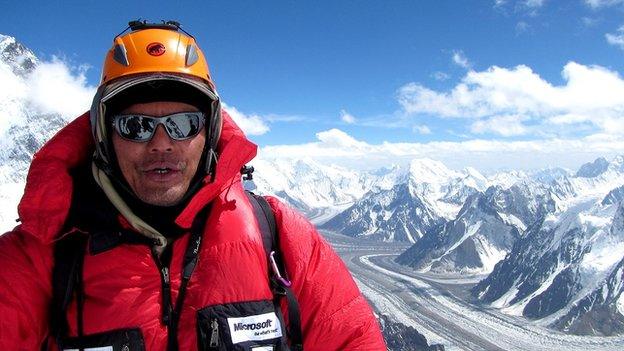CEO Secrets: Recruit people 'better than you'
- Published
Harriet Green was asked: "What advice do you wish you'd had when you started in business?"
"Always surround yourself with people who are better than you. Whatever it is that you are not - surround yourself with them." A surprising bit of business advice offered by Harriet Green, former boss of the Thomas Cook Group.
If you are into CEO-spotting, then a BBC News building is as good a place as any to be based.
Nearly every day a major company will report financial results, meaning a chief executive will step up to the camera, or microphone. Whether it's to bask in the glory, or to put a brave face on things.
With all this talent on our doorstep, we decided to set up our own business venture. Why not politely grab these CEOs as they passed through, and ask them one simple question on camera:
"What is the advice you wish you'd had, when you started out?"
Although CEOs are busy people, most were delighted to take time out to ponder this question. After all, who doesn't want to be regarded as a fount of wisdom?
The results of our CEO sampling is running on our Social Media platforms this week: @BBCBusiness on Twitter, our BBC Business Facebook page, BBC Shorts on Instagram and BBC Business News on LinkedIn - each video tagged with #CEOSecrets.
Here are the three core pieces of advice that emerged by consensus.
Pick your team
The entrepreneur is often portrayed as the swashbuckling individualist, battling unbelievers to create a business around his or her groundbreaking idea.
A lone crusader in the Dragon's Den.
But many of our CEOs chose to reflect on the importance of the team around them, especially in the early days of the business.
"If you are starting a new business, it's crucial you choose the people you are going to work with, and then treat them well," explained Ruth Rogers, co-founder of The River Cafe. "You are going to be spending a lot of time with them", she cautioned.
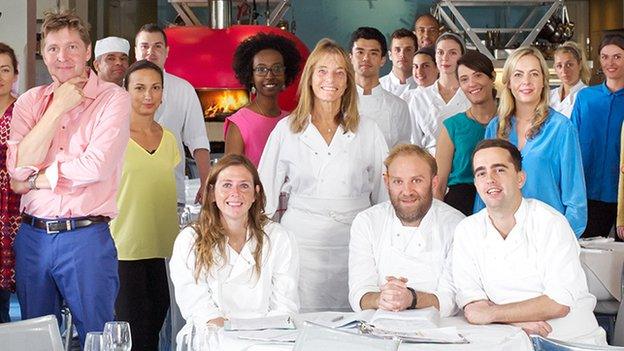
Ruth Rodgers surrounded by her team at The River Cafe
"I really would advise you to get two or three people to go into business with," said Richard Reed, one of the founders of Innocent Drinks, "who have got the same values as you, but different skills."
This will make you a strong, dynamic team, "capable of nailing every bit of the business", he reckons.
Harriet Green, former CEO of the Thomas Cook Group, put it succinctly, when we caught up with her at the Businesswoman of the Year Awards.
"Whatever it is that you are not, surround yourself with them."
Sir James Dyson - the engineer best known for his eponymous vacuum cleaners - was very specific about the type of people you should surround yourself with when embarking on your venture. "Engineers and scientists", he insisted.
"Trust in them, believe in them and back them."
Mind you, he is well known as a champion of engineers. Not only is he one himself. His Dyson Building at the Royal College of Art houses a business incubation lab, that churns out dozens of designers and engineers like him every year.
Ready, Steady...Network
Perhaps it was obvious that Reid Hoffman would make networking part of his advice.
After all, he has literally built his career around it, founding the business-orientated online social network LinkedIn.
"People that you meet in school, that you meet in work...provide the opportunity for how you progress in your career," he said.
LinkedIn boss Reid Hoffman: 'Leave the beaten path'
"If I had understood this when I was younger, I would have become much more directed and become an entrepreneur earlier."
Did this mean friendships should be pursued with career development in mind - or is the process more natural than that? He didn't elaborate.
Perhaps more surprisingly, networking was also the first piece of advice offered by rapper and business mogul Tinie Tempah.
"Network from an early age", he advised. For him this means just being sociable and building a diverse group of friends, who you can tap into for opportunities.
Get Started
"The single most important thing in business is to go out there and give it a go," according to Richard Reid. "Get started, and good luck."
Many of the CEOs we caught up with returned to this idea of prioritising action over contemplation (ironically, since we had asked them to engage in a highly abstract and contemplative exercise).
For Sir James Dyson, this means overcoming the fear of making mistakes.
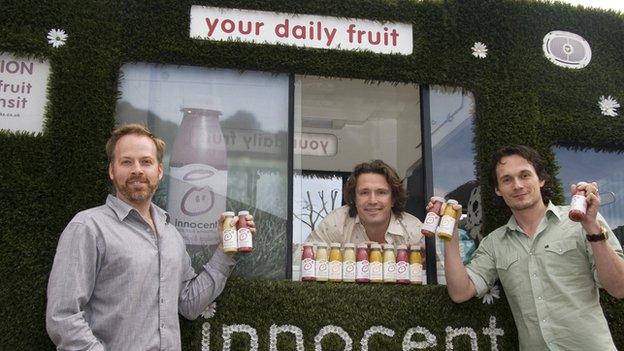
Richard Reed of Innocent Drinks advised to build a core team that can "nail every part of the business"
"Fifty per cent of the decisions you make will be wrong - learn from them."
In the case of Giles Dean, a personal fitness entrepreneur, you could feel the anguish in his voice as he spoke of leaving it late in life to enter the world of business.
He was a barrister helping others in their commercial endeavours, until he started his own business in his forties.
"Their dreams were happening and I was watching from the sidelines", he said mournfully.
"But the frustration that caused me eventually galvanised me into action."
"Make sure you've got a belief that you will sacrifice everything for, and as soon as you've got that - get on with it."

Follow series creator and producer Dougal Shaw on Twitter, external or Facebook, external.

"Network from an early age", counselled rapper and entrepreneur Tinie Tempah
- Published3 August 2015
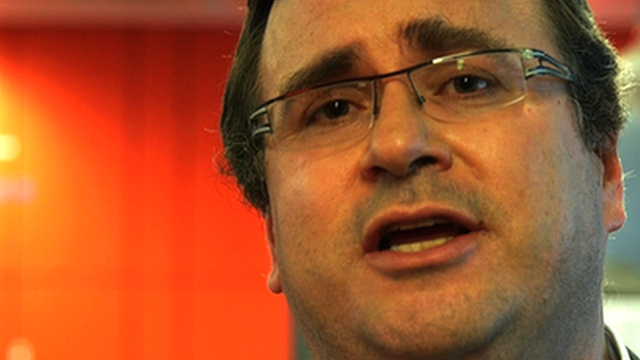
- Published7 August 2015
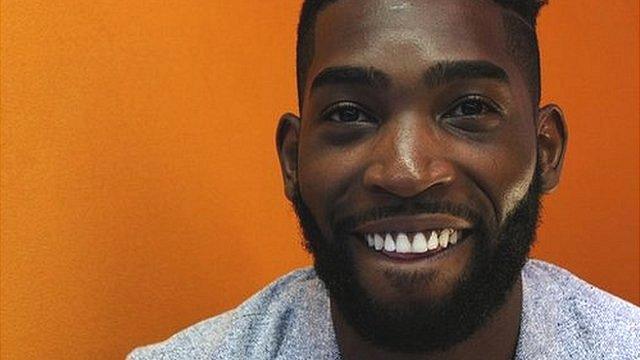
- Published26 July 2015
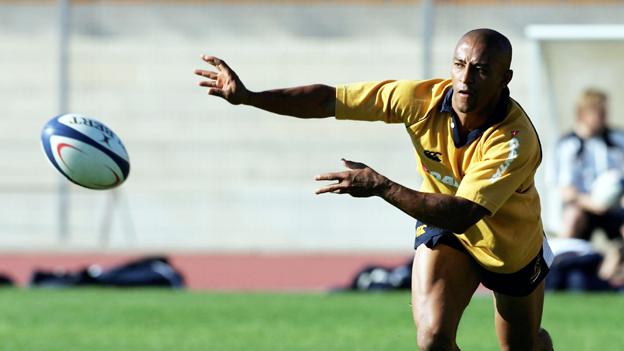
- Published23 July 2015
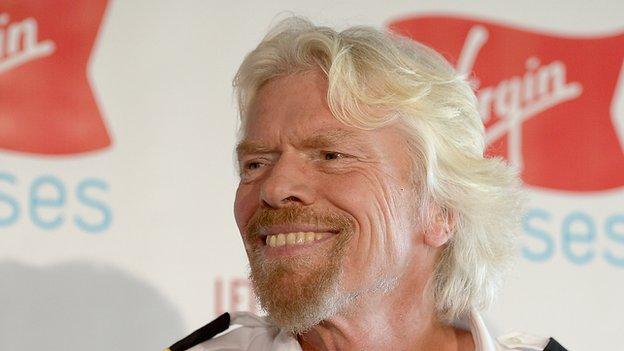
- Published12 July 2015
